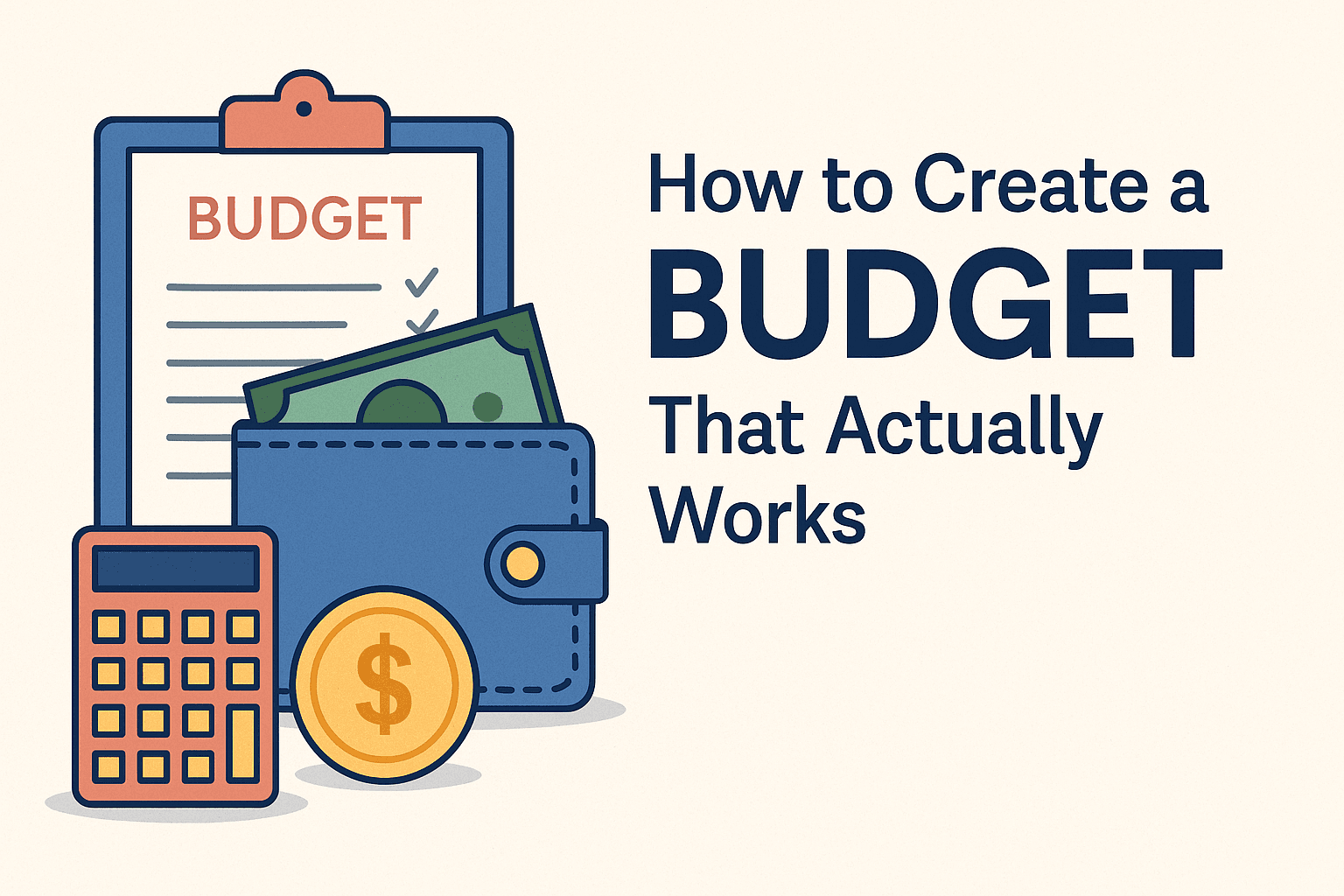Let’s be honest—budget doesn’t exactly sound fun. But neither does running out of money a week before payday, or realizing you’ve got nothing saved for emergencies or goals. A good budget isn’t about restrictions—it’s about freedom. It gives you control, clarity, and the confidence to make better decisions with your money.
If you’ve tried budgeting before and it didn’t work, don’t worry. You’re not alone—and the good news is, it’s totally fixable. Here’s a practical, no-fluff guide to building a budget that actually works for your lifestyle in 2025.
1. Know What You’re Working With (Your Real Income)
Start by figuring out how much money you bring home each month after taxes. That means your actual take-home pay—not your salary before deductions.
Include:
- Your salary
- Freelance or side income
- Any regular bonuses or rental income
Don’t include inconsistent money like gifts, refunds, or one-time windfalls. Your budget should be built on reliable income only.

2. Track Your Spending (Yes, Every Rupee)
Before you can build a budget, you need to know where your money is going right now.
Track everything you spend for one full month. Use an app, spreadsheet, or even pen and paper—whatever works for you. Be brutally honest.
Break it down into categories like:
- Rent or mortgage
- Groceries
- Transportation
- Eating out
- Subscriptions
- Debt payments
- Savings (if any!)
You might be surprised at what you find—and that’s a good thing.
3. Choose a Budgeting Method That Fits You
There’s no perfect way to budget. The best method is the one you’ll actually stick to.
Here are three popular approaches:
👉 The 50/30/20 Rule
- 50% for needs (rent, bills, groceries)
- 30% for wants (eating out, Netflix, hobbies)
- 20% for savings and debt repayment
Simple and flexible—great for beginners.
👉 Zero-Based Budgeting
Every rupee you earn gets assigned a “job,” so income minus expenses equals zero.
This method gives you the most control but takes a bit more effort.
👉 The Envelope System (for cash spenders)
Withdraw cash and divide it into labeled envelopes (e.g., groceries, gas, entertainment). When an envelope is empty, you’re done spending for that category. It’s old school—but it works!
4. Set Goals That Actually Motivate You
A budget is just a plan—but goals give it meaning.
What are you budgeting for?
- An emergency fund?
- Paying off a credit card?
- A vacation?
- Saving for a car or business?
Pick a goal, assign a timeline, and break it down. For example:
“I want to save Rs. 100,000 for a down payment in 10 months = Rs. 10,000/month.”
Put it in your budget like any other bill—because it’s a priority.
5. Cut the Stuff That Doesn’t Matter
Once you’ve tracked your spending and set your goals, it’s time to make some cuts. Not to punish yourself—but to make room for what actually matters to you.
Look at:
- Subscriptions you forgot about
- Food delivery you didn’t need
- Impulse purchases that added no value
Even cutting Rs. 1,000–2,000 a month in small areas can go straight to savings or debt payoff.
6. Review Your Budget Monthly
This is where most people slip up—they create a budget once, but never look at it again.
Your income or expenses will probably change, so your budget should too. Check in every month. Adjust your categories. Celebrate wins. Fix mistakes.
The more you treat budgeting like a routine (not a chore), the easier it gets.
Final Thoughts
You don’t need to be a finance expert or earn a huge income to take control of your money. What you need is a plan—a realistic, flexible, and goal-focused budget.
Start simple. Be honest. Adjust as you go. And most importantly, remember this: a budget isn’t about saying “no” to fun—it’s about saying “yes” to the things that truly matter.



